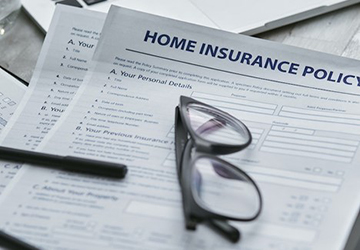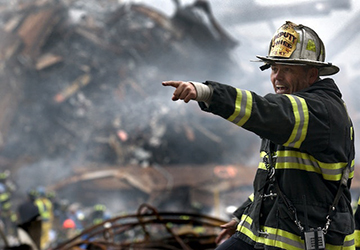You only expect disaster to strike so close to home once it happens. One moment, you're enjoying an ordinary day. The next, your world is turned upside down by raging wildfires, catastrophic floods, or devastating hurricanes. When a natural disaster hits, the damage can be unimaginable. Homes are destroyed, lives are uprooted, and communities struggle to pick up the pieces.
Yet, there is hope to rebuild. Insurance plays a crucial role in helping disaster victims get back on their feet. With insurance support, homes are repaired, businesses are reopened, and infrastructure is restored. Recovery is a long process, but insurance provides a lifeline for people to weather the storm. Together, we have the power to build back better and stronger!
The Financial Devastation of Natural Disasters and How Insurance Provides a Lifeline
The monetary damage from natural disasters is staggering. According to Munich Re, a global reinsurance company, natural catastrophes it caused $210 billion in overall losses in 2019 alone. Many of these costs are uninsured, leaving communities struggling to rebuild in the aftermath.
Insurance plays a crucial role in helping communities recover financially from natural disasters. Homeowners insurance provides funds to repair or rebuild damaged properties. Business interruption insurance allows companies to survive periods when they cannot operate.
Insurance also reduces the burden on government assistance programs after disasters. Without insurance, the costs of relief and rebuilding would fall almost entirely on governments and taxpayers.

How Insurance Helps Families and Businesses Rebuild
Once disaster strikes, insurance provides a lifeline for recovery. For families and businesses, insurance helps in three crucial ways:
Replacing Damaged Property
Insurance provides funds to repair or rebuild homes, vehicles, and commercial buildings after damage from hurricanes, floods, or wildfires. For many, insurance payouts are the only way to replace essential property.
Providing Living Expenses
Insurance also helps cover additional living expenses when homes are uninhabitable, like temporary housing, food, and transportation. This aid is critical, especially for vulnerable groups like the elderly or disabled.
Getting Operations Up and Running Again
For businesses, insurance is vital to resuming operations. Payouts help repair physical damage, replace inventory and equipment, and pay employee wages during closures so companies can reopen their doors. Speedy recovery means jobs and local economies can rebound faster.
While insurance can never undo the trauma of a disaster, it plays an integral role in helping communities heal and rebuild.
Different Types of Coverage for Natural Disasters
Here are the different types of coverage that insurance gives for natural disasters.
Homeowners Insurance
Homeowners insurance is designed to help recover the costs of damage to your home and belongings in natural disasters like hurricanes, floods, or wildfires. Standard policies typically cover damage from wind, fire, lightning, and burst pipes but not flooding. You'll need to purchase separate flood insurance for that. Before disaster strikes, ensure you understand precisely what is and isn't covered under your homeowner’s policy.
Flood Insurance
Flood insurance is critical for recovering from damage caused by flooding during natural disasters like hurricanes, tropical storms, and heavy rains. Homeowners insurance does not cover flood damage, so you must purchase a separate policy.
Flood insurance is provided by the federal government's National Flood Insurance Program. Premiums are subsidized, so flood insurance is typically very affordable. However, a 30-day waiting period is usually before a new policy goes into effect. So buy coverage before a storm is brewing.
Business Interruption Insurance
Business interruption insurance can help business owners recover income lost due to natural disasters that temporarily force them to close their doors. This coverage reimburses you for lost net income and regular operating expenses when your business cannot operate.
It can also help pay extra expenses to set up a temporary location. Business interruption insurance is not part of a standard business owner's policy, so you must purchase it as a rider or add-on. It's worth the investment, especially if your business is in an area prone to natural disasters.

Top 6 Tips for Adequate Coverage
As a homeowner, one of the most important things you can do is ensure adequate insurance coverage in a natural disaster. Here are some tips to help ensure you're adequately covered:
Review Your Policies
Double-check that your homeowner's insurance policy covers natural disasters common to your area, such as floods, hurricanes, earthquakes, or wildfires. Standard procedures only sometimes include these types of events.
Understand Your Risks
Evaluate the risks of natural disasters for your specific location. If you live in a high-risk area, you'll want to ensure your coverage limits are sufficient to rebuild your home.
Close Coverage Gaps
Look for any gaps in your coverage and see if you need additional riders or supplemental policies to fill them. For example, if flooding is a concern, you’ll want a separate flood insurance policy since most standard policies don’t cover flood damage.
Working With Insurers for Fair Payouts
Working closely with your insurance providers following a natural disaster is crucial to receiving fair compensation for damages. As the policyholder, you have certain rights and responsibilities to uphold.
Documenting Losses
Double-check that you have photographs and written records of your belongings before a disaster strikes. Keep copies of receipts for major purchases as well. When damage occurs, take pictures of everything and keep a written log of losses.
The more evidence of your losses you can provide to your insurance company, the less likely they will dispute or deny your claims.
Appealing Denied Claims
You can appeal if your insurance provider denies any part of your claim. First, request a written explanation from the adjuster explaining why your claim was denied. Review their reasons carefully and gather any additional evidence you have to build your case.
The Closure!
As devastating as natural disasters can be, they are inevitable. You can only control how prepared you are to weather their impact. While the road ahead may be extended, insurance provides financial safety and peace of mind. It allows you to focus on rebuilding your home and resuming your life rather than worrying about costs. You've weathered life's storms before and'll survive the next one, too.


